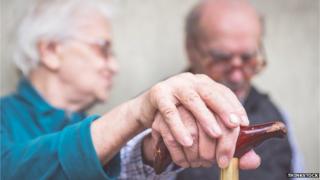Warfarin is also known as Coumadin and I was taking it for a whole lot of years. Thank goodness my doctor changed me to Xarelto.
Researchers also observed that, notably, patients younger than 70 years tended to be the most vulnerable to an increased dementia risk.
(At least I've passed beyond that!)
Story with links @ Common blood thinner may increase dementia risk in certain patients | Fox News
Researchers also observed that, notably, patients younger than 70 years tended to be the most vulnerable to an increased dementia risk.
(At least I've passed beyond that!)
Story with links @ Common blood thinner may increase dementia risk in certain patients | Fox News

